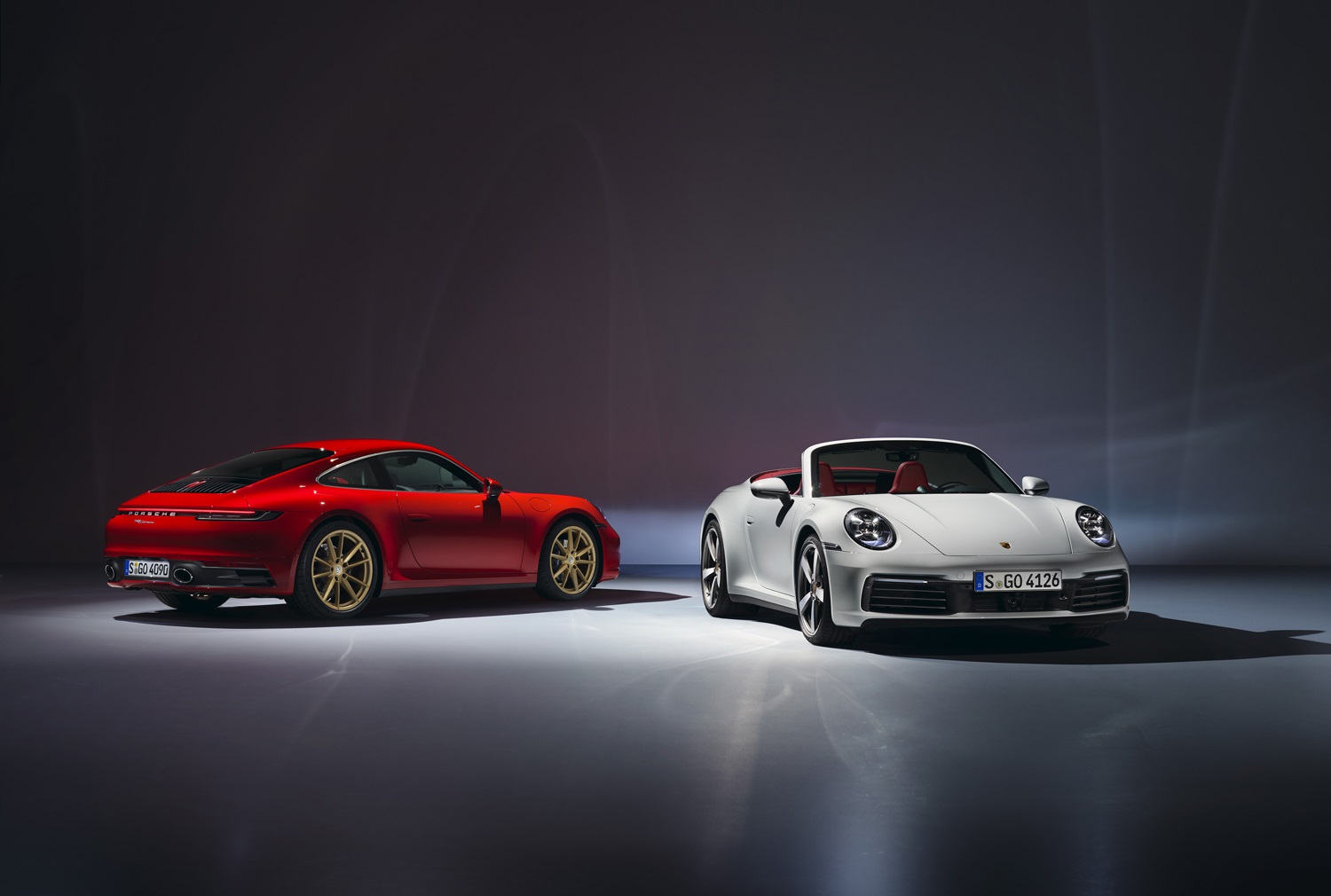
The Porsche 911 is getting a hybrid variant, but it won’t be all about gas mileage. In an interview with Top Gear, Porsche CEO Oliver Blume said the hybrid will be the meanest 911 of all. Considering the performance capabilities of the previous 911 Turbo, GT3, and GT2RS, that’s a tall order.
“We have said the next 911 could add a hybrid version. That will be the highest performance 911 of all,” Blume said. The 911 will not be a plug-in hybrid, like many of Porsche’s current road cars, Blume said. That will minimize the size of the battery pack, helping to keep weight down, according to Blume. Extra weight isn’t as big of a deal in an already-heavy vehicle like the Cayenne than it would be in a sports car. Packaging a larger battery pack and charging system could also prove difficult in the 911’s smaller footprint.
Blume’s claim that the hybrid will be the highest performance 911 sounds ambitious, but Porsche has left itself some wiggle room. The current-generation 911 — code-named 992 — was unveiled in 2018, but Porsche has taken its time filling out the lineup with new variants. Many of the sportiest 911 models from the old 991 platform haven’t been replaced with new versions. It’s possible that, when redesigning one of these variants, Porsche could give it a hybrid makeover. Imagine what a new 911 Turbo would be like with electric assist, for example.
Blume indicated that an all-electric 911 isn’t in the cards, but Porsche could still launch an electric sports car. Porsche will soon start work on the next-generation 718 Cayman and Boxster, Blume noted, adding that “it could be electric.” A final decision will be made within the next 12 months. Porsche recently launched its first production electric car — the Taycan — and plans to launch an electric version of the Macan in 2021.
The 911 may not be the only new Porsche to get a high-performance hybrid powertrain. A separate report claims Porsche is working on a hybrid supercar to replace the 918 Spyder. The new supercar would reportedly use an engine from Porsche’s aborted Formula 1 program. F1 currently mandates hybrid powertrains, so that engine would have been designed to work with electric assist from the start. If the rumors prove true, this car reportedly won’t appear until 2023 at the earliest.


